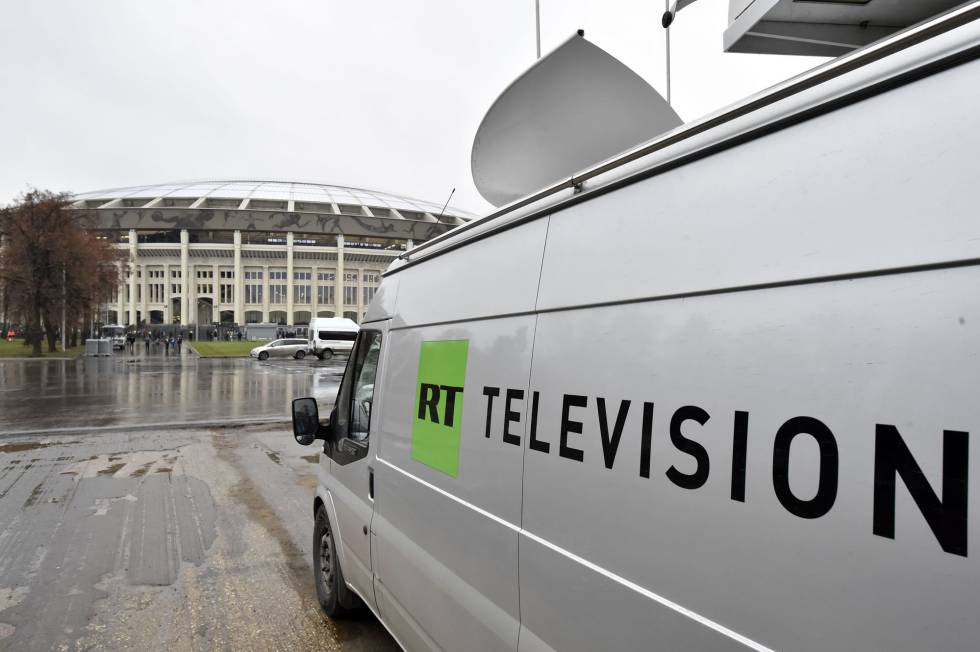Google to “engineer” Russia Today and Sputnik out of search results
Company says changes designed to fight spread of propaganda but is ruling out blanket bans
San Francisco

Archive image of a Russia Today van in Moscow. KIRILL KUDRYAVTSEV AFP
Tech giant Google is taking steps to fight fake news, with suspect content to be engineered out of search results.
Two Russian media outlets, Russia Today (RT) and Sputnik, have been singled out for special treatment by the company and will be “de-ranked” in search results provided by the search engine, said on Saturday Eric Schmidt, executive chairman of the Alphabet group of companies owned by Google.
RT and Sputnik have been required to register as foreign agents by the US Justice Department
“We are well of aware of [the problem], and we are trying to engineer the systems to prevent [these stories from appearing in search results],” Schmidt said during the Halifax International Security forum in Canada.
But the chairman ruled out a blanket prohibition. “We don’t want to ban the sites. That’s not how we operate,” he added.
“I am against censorship and clearly in favor of modifying the weight given to [the sites]. I understand that it is legitimate to ask ourselves how we give more importance to A than B, I take that on board. We do it as well as we can with millions and millions of decisions very day,” he explained.
Russian Today and Sputnik have been at the center of investigations into Russian interference in electoral processes in several countries, starting with that which delivered Donald Trump to the White House. They have also played a role – particularly RT – in the dissemination of hoaxes, exaggerations and half-truths about the recent Catalan crisis.
The Alphabet executive chairman described the strategy of the Russian media outlets as fairly straightforward, saying it was based on the “amplification” of “repetitive, exploitative, false” information.
“My own view is that these patterns can be detected and that they can be taken down or de-prioritized,” he added.
We don’t want to ban the sites. That’s not how we operateERIC SCHMIDT, EXECUTIVE CHAIRMAN OF THE ALPHABET GROUP
Google made the first step in this direction when it scrapped the possibility of buying advertisements to promote RT and Sputnik content. In October, it made the unusual move of eliminating RT from its premium YouTube Red subscription service, the largest video-storage site in the world.
Both on YouTube and Facebook, RT has been incredibly successful at viralizing content. By being taken off the list of preferred Google partners, it will be deprived of revenue from special advertising. However, the firm is continuing to publish videos on a channel that has 2.2 million subscribers.
US intelligence services have already identified RT and Sputnik in their investigation into Russian intervention in the US election of a year ago. Last week, the US arms of the two media outlets registered themselves as foreign agents, or organizations working in the interests of a foreign power, after having been forced to do so by the US justice department. Their new status will give Google more scope in terms of de-ranking their content, as the tech firm has greater control when it comes to the ranking of domestic press.
Meanwhile, Facebook has started to reveal the origin of RT and Sputnik advertising on its platform, with the details pointing directly at Russian agencies. And Twitter has prevented Russian outlets from purchasing advertising on its site.










.png)



























No hay comentarios:
Publicar un comentario